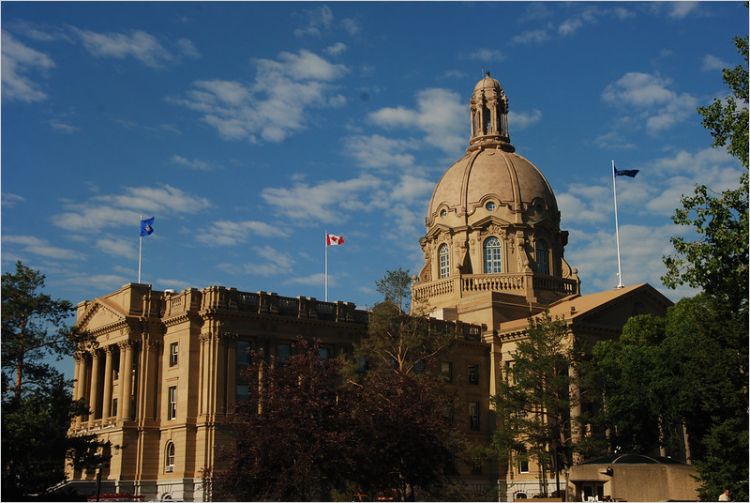
Photo: Pembina Institute
CALGARY, AB — The Government of Alberta has made no meaningful progress on the commitments made in its Emissions Reduction and Energy Development Plan, launched one year ago today, according to a new assessment published by the Pembina Institute.
In the twelve months since the plan’s launch, the government has issued no update on progress, nor has it identified short-term actions that would reduce emissions. The plan included commitments to exploring a strengthening of provincial methane regulations, and of lowering Alberta’s oilsands emissions limit to align with the emissions reduction plan already released by the oilsands industry grouping, the Pathways Alliance. The Pembina Institute’s assessment finds no publicly available evidence of progress on either of these crucial steps, both of which would help to ensure the oil and gas industry delivers on its own emissions reduction promises.
Alberta’s emissions trajectory since 2005 remains the worst in Canada, where eight out of ten provinces have seen emissions fall, while Alberta’s have increased by nine per cent. The Pembina Institute cautions that this lack of investment in clean growth sectors, and absence of strategies to prepare Alberta’s industries for the energy transformation that is already underway, is leaving the prosperity of the province at risk.

A comprehensive review of the provincial government’s announcements and activities in the past year has found only two incremental actions that would contribute to meeting the plan’s stated objectives. Meanwhile, there is no evidence of progress on many of the plan’s proposed activities and objectives. The government has yet to begin the type of preliminary stakeholder engagement that is expected as a first key action in identifying how it will practically reduce emissions in the short term, and ultimately achieve its aspiration of carbon neutrality by 2050.
In addition to outlining a lack of progress on the plan to date, the Pembina Institute’s assessment provides six tangible actions that the government could take this year, and would represent the beginning of meaningful progress on its climate aspirations. These are:
- Undertaking and completing analysis of a pathway to net-zero emissions for every sector, with interim emissions targets identified and set on the road to 2050;
- Strengthening Alberta’s industrial carbon pricing system to incentivize investments in emissions reductions by large industrial emitters;
- Lowering the Oil Sands Emissions Limit, accompanied by effective regulations that enforce the limit;
- Modernizing the mandate of the electricity system operator and utilities regulator, sending clear signals about the development of renewable and clean electricity production and supporting clean infrastructure (such as transmission and storage);
- Re-establishing Alberta as a leader on tackling oil and gas methane emissions by committing to upgrade current regulations in line with strengthened federal rules; and
- Implementing new rules that would pave the way for cost-effective demand-side management measures for electricity use.
Quotes
“In 2024, decarbonization policy is economic policy. Alberta is placing its economy at risk as it falls further behind in having a clear plan to reduce emissions, especially across its heavy industries, and embrace diversification of the economy to the clean growth sectors of the future.”
— MC Bouchard, oil and gas program director, Pembina Institute
“Canada is taking steps to move towards a clean, modern economy, and Alberta is choosing not to get on board. Since 2005, Alberta’s emissions have grown, while they’ve fallen in almost every other province. This matters to Albertans, who have a right to expect their government to recognize the global shift towards low-carbon economies and energy resources, and make sure they don’t get left behind.”
— Simon Dyer, Deputy Executive Director, Pembina Institute
-30-
Visit the Pembina Institute’s website to download a copy of the assessment.
Contact
Communications Manager, Pembina Institute
825-994-2558
Background
Media release: Alberta climate plan acknowledges need to cut emissions but lacks key elements of a credible strategy